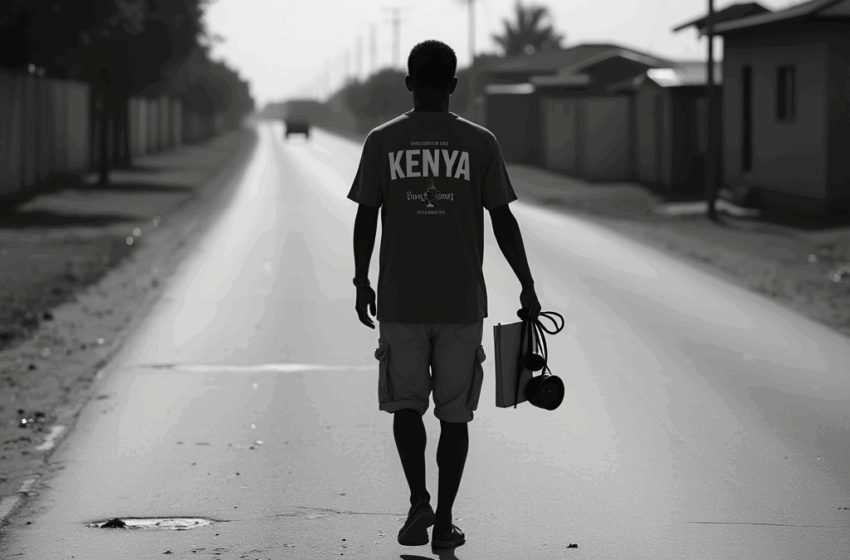Since Coronavirus was declared a pandemic, there have been reports from around the world about the surge of domestic violence cases. The number of reported cases has been so high so much so that the Secretary-General of the United Nations, António Guterres has been compelled to call for “peace at home”. The UN Boss, on April 5 called for domestic violence ‘ceasefire’ amid ‘horrifying global violence against women related to government-imposed lockdowns following COVID-19 pandemic.
“I urge all governments to make the prevention and redress of violence against women a key part of their national response plans for COVID-19,” Guterres remarked.
In an article published by Voice of America (VOA) on April 5, France had reported a surge in domestic violence rates by a third in one week. In South Africa, authorities received nearly 90,000 reports of violence against women in the first week of its lockdown. In Australia, the government said online searches for support on domestic violence had risen 75%, while in Turkey, activists were demanding greater protections after the killing of women rose sharply after a stay at home order was issued March 11. In India, India’s National Commission for Women (NCW) indicated that it registered 587 domestic violence complaints between March 23 and April 16.
Worried Government
Here in Kenya, the Cabinet Secretary Mutahi Kagwe of Health during his daily COVID-19 briefing to the country on April 15 said that there was an increase in the number of cases of domestic violence as a result of the pandemic. While acknowledging the inconveniences caused by Coronavirus, he called upon the clergy and other professionals to offer guidance and counseling to Kenyans. ‘’This is a new normal and we will face challenges we have not faced before…let us not vent out our anger on family members,” said Kagwe.
In March alone, Kenya had recorded at least 106 cases through the Gender ministry’s toll-free sexual and gender-based violence helpline. According to the Ministry, this was 56 more cases than were reported in January before the Covid-19 pandemic. The ministry also acknowledged that women where are relatively at a higher risk of suffering gender-based violence during the lockdown.
On April 2, the National Council on Administration of Justice (NCAJ) released a statement saying sexual offenses had risen significantly following the government’s announcement of the 7 PM -5 AM curfew. The NCAJ noted the cases constituted 35.8 percent of the criminal matters reported within the two weeks of lockdown. “There has been a significant spike in sexual offenses in many parts of the country in the last two weeks. In some cases, the perpetrators are close relatives, guardians, or persons living with the victims,” said Chief Justice David Maraga. That we are experiencing increased violence in our homes is news; what is not news is that domestic violence in many households in Kenya has been an on-going concern.
What the data say
In January this year, a group of researchers from the University of Lagos Nigeria published in the journal ‘Public Health’ findings comparing domestic violence in East, South, and Western Africa. In the three study countries, Nigeria, Mozambique, and Kenya, representing the three regions of East, West, and East sub-Saharan Africa, Kenya men were found to be the most violent.
The study which sampled 29,793 women in the three countries showed that Kenyan men are twice likely to be violent against their partners compared to Nigerians. The risks for violence, the study said was about 200 times higher for a woman whose partner consumes alcohol and/or gets jealous when she talks with another man compared to other women. “Domestic violence among the ever-married women in Kenya, Mozambique and Nigeria, was 39.0 percent, 31.0 percent, and 15.4 percent respectively the report said.
According to the 2014 Kenya Demographic and Health Survey (KDHS), 45 percent of women age 15-49 have experienced physical violence since age 15. 14 percent of women age 15-49 report having experienced sexual violence at least once in their lifetime. Overall, 39 percent of ever-married women age 15-49 report having experienced spousal physical or sexual violence.
Using the above citations as a premise, it appears that domestic violence in Kenya is a daily reality for many women across the country.
Since COVID-19 was declared a pandemic in Kenya, the media has done reports on confirmed cases, deaths, and recoveries. The media has also highlighted the socio-economic impact of the pandemic including the destruction of the economy, disruption of normal livelihoods among others. However, one of the issues that the media has largely under-reported is domestic violence in our homes.
It is easy to understand why? In many communities, domestic violence has been normalized so much so that it hardly gets reported either by the witnesses or victims. Two, the media considers domestic violence as lacking a ‘sellable’ or premium news-angle to it. Perhaps because it happens almost daily like petty thefts. A domestic violence case will probably get the media attention when the crimes are so heinous like rape and murder.
Reasons for spike in domestic violence during COVID-19
Since COVID-19 became the new reality, movement has been restricted. Life as we knew it is gone. Many people who weren’t used to the stresses caused by being confined in one place are finding it difficult to adjust. This, coupled with the daily social and economic anxieties brought by the Coronavirus has people on edge.
Two, with no jobs, no money and no place to go, many couples who didn’t have much in common are now forced to share a small space. Ordinarily, spouses could go to work and then return home with some men going go to the recreational centers. However, with lockdowns, spouses are now stuck together with tensions running high.
Three, during normal times, domestic violence victims could escape to a neighbor’s house for refuge. Right now, perpetrators know that they can assault their victims but there’s nowhere they will run to due to the curfew/lockdown.
Job losses and extreme financial difficulties caused by COVID-19 is another contributing factor. Families can’t make ends meet yet the pressure to provide for food, and keep the roof over the family is as real as it gets. A simple request for money is enough to start World War One. With schools closed and children at home, water and electricity bills are soaring – eating into the little savings available- making the situation even more dire.
Onwards
All relevant players need to prioritize services for the prevention of domestic violence by addressing the above precipitators. For example, the government can offer food subsidies and stipends to those affected, it can also offer tax breaks for companies to avoid further lay-offs.
Sector players like religious groups and NGOs need to set-up guidance and counseling centers where victims and those feeling the pressure of COVID-19 can seek counseling.
The government to develop a quick response system for gender-based violence cases e.g. through a WhatsApp group or hotline to ensure timely protection for the victims or would-be victims. In Italy for example, the government has launched an app that allows domestic violence victims to seek help without making a phone call.
The government to have all Gender-based Resource Centers (GBRCs) open and staffed to quickly respond to distresses emanating from domestic violence.
This article was published by Peoples’ Daily Nigeria on May 13, 2020
Link to article>>https://peoplesdailyng.com/turmoil-in-marriages-domestic-violence-in-the-rise-amid-covid-19-lockdown/



